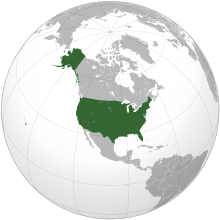How January’s Fiscal Cliff Turns Into A Gentle Hill By February (Or March) – OpEd
By Robert Reich
These are awkward days for deficit hawks who believe the American economy can get back to health only if the nation gets its fiscal house in order. If they get their wish, the economy goes over a cliff.
Regardless of what happens Election Day, at the beginning of next year more than $600 billion in tax increases and spending cuts automatically go into effect. That’s equivalent to about 5 percent of the entire U.S. economy, more than the projected growth of the whole gross domestic product next year.

The problem is, if we fall off this fiscal cliff we plunge into recession. That’s because the cliff withdraws too much demand from the economy too quickly, at a time when unemployment is still likely to be high.
The Congressional Budget Office projects real economic growth will drop at an annual rate of 2.9 percent in the first half of 2013, and unemployment will rise to 9.1 percent by the end of next year.
As Spain and Great Britain have demonstrated, launching fiscal austerity at a time when a nation’s economic capacity is substantially underutilized causes the economy to contract. This makes the debt even larger in proportion to the size of the economy. Rather than reassure global lenders and investors, it spooks them more.
America is about to fall off the fiscal cliff because Democrats and Republicans in Congress haven’t been able to agree on a plan for long-term deficit reduction – and this failure will trigger automatic spending cuts in January. Meanwhile, the temporary tax cuts enacted by former President George W. Bush in 2001 and 2003, and extended for two years by President Obama, will run out December 31st, as will the President’s temporary jobs measures – a payroll-tax holiday and extended unemployment benefits.
In a rational world, deficit reduction on this scale wouldn’t happen until the economy is once again healthy – when unemployment has dropped to below 6 percent and economic growth is back to at least 3 percent. These would be sensible triggers.
But hyper-polarized Washington hasn’t shown itself capable of rational behavior. Democrats and Republicans have been so much at each others’ throats that whenever one side senses the other wants (or fears) something more, the party that doesn’t want or fear it as much has a bargaining advantage in an ongoing game of chicken.
This is why the nation is heading over the cliff – or, more accurately, appears to be heading that way. Congressional Democrats have concluded Republicans are more afraid than they are of going over it because the pending tax increases will fall most heavily on America’s wealthy, and half the spending cuts would come out of the defense budget. (Republicans, you may have noticed, are particularly solicitous of the wealthy and of defense contractors.)
So most Democrats have decided to wait it out in order to maximize their bargaining power in negotiations over how to reduce the long-term deficit. They want a deal that raises taxes only on America’s wealthy and doesn’t substantially alter Medicare, and Social Security — which is the opposite of what Republicans want.
Democrats also reason that, once the Bush tax cut has been terminated, Republicans won’t be able to resist an offer to reduce taxes on the middle class (those earning $250,000 or less). After all, Republicans have pledged to vote for any and all tax cuts. Once Democrats get the best deal they can, they’ll make it retroactive to January 1.
As a practical matter, then, negotiations over America’s budget deficit will drag on into the new year, right over and beyond the fiscal cliff. A deal might not be struck until February, or even March.
But because everyone will know that the final compromise won’t be nearly as draconian – and is going to be retroactive to the start of the year — the cliff won’t feel like much of a cliff. In actual effect it will be more like a hill whose slope remains uncertain but will almost surely be gradual.
With any luck, by the time significant tax increases and spending cuts take permanent effect, unemployment will already have dropped and growth accelerated. In other words, the irrational and irascible American political process may come up with a timetable for reducing the budget deficit that’s surprisingly sensible.
